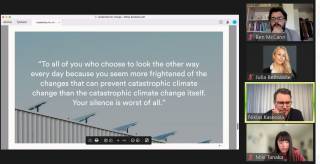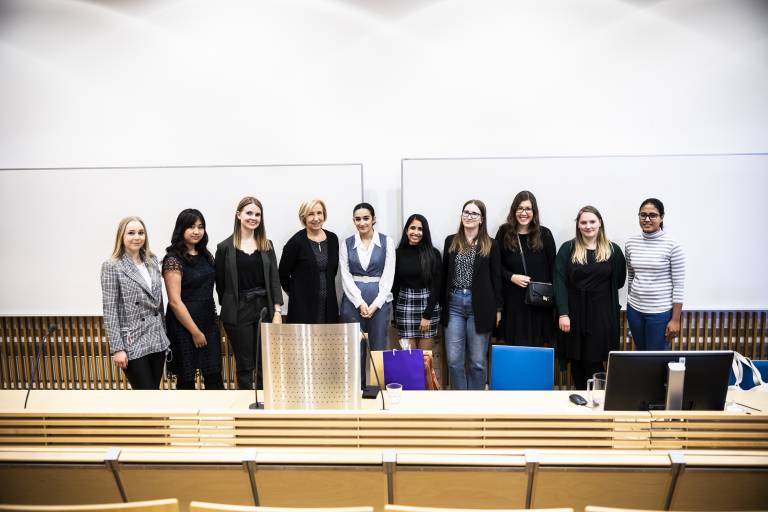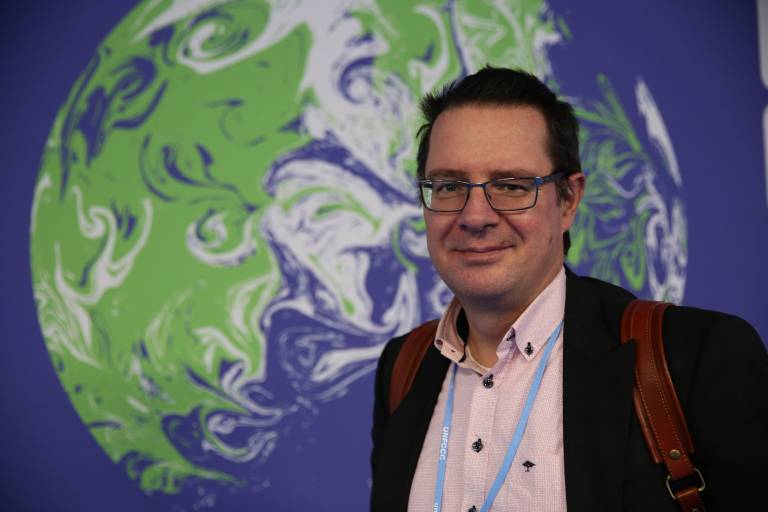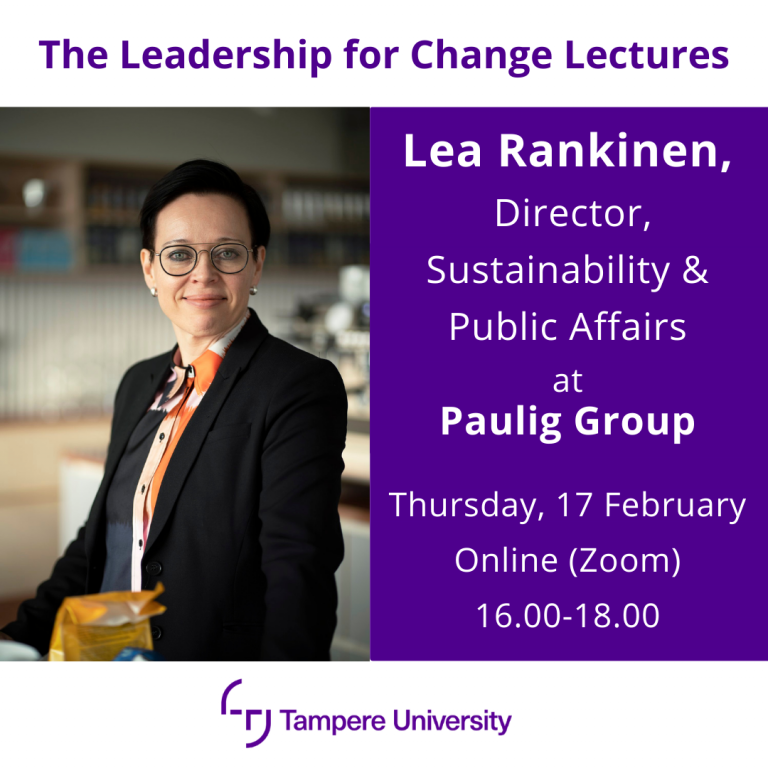Mr. Kaskeala is the current chief impact officer of Compensate, a non-profit foundation founded by a former politician tired of the tendency of politicians to blame other actors, and thus taking no real action. His title, as Niklas explained, is focused on impact, which has a broader area of effect than sustainability, which would imply an internal view of the actions and processes of Compensate, but no outside concerns.
With his brand of easy going humor and 15 years of experience in his belt, Niklas discussed the falsehood of current debates about how to solve – or at least mitigate – the climate crisis, pointing out that binary views such as structural/systemic solutions vs. individual ones are purposefully crafted to put the blame on the other, forgetting that, if the problem affects us all, than we all should participate in the solution.
 With honesty and straightforwardness, Mr. Kaskeala explained that all solutions should be welcomed and deployed together. Of course those with more power and resources can and should do more, and as he says, protect and help develop those with less, but everyone should participate to the best of their abilities. In his words, “If civil society is not pushing for the change, how can we expect our leaders to push it? They are a reflection of society, of the people that voted for them to occupy those places”.
With honesty and straightforwardness, Mr. Kaskeala explained that all solutions should be welcomed and deployed together. Of course those with more power and resources can and should do more, and as he says, protect and help develop those with less, but everyone should participate to the best of their abilities. In his words, “If civil society is not pushing for the change, how can we expect our leaders to push it? They are a reflection of society, of the people that voted for them to occupy those places”.
Isn’t it too simplistic, you might be wondering. Everybody holding hands and helping each other sounds like a fairytale, doesn’t it? If that is the case, Niklas then argues for the need of real life heroes to lead us towards that path, saying that the climate crisis is also a leadership crisis.
As with any other fairytale, the quest sounds herculean. The pledges made during the COP26 – our path towards mitigating the climate crisis – are not being fulfilled. The CO2 concentration in the atmosphere has been above safe levels ever since 1987, making the concepts of net-zero and carbon neutrality simply not enough. Even the Finns, according to Niklas, have a long way to go, since a wooping 75% reduction in the average Finn’s carbon footprint is necessary in order to meet the Paris agreement goals.

Yes, the future does look bleak, and the task almost impossible, but our hero Niklas offers us again a glimpse of hope. He reminds us that many other seemingly impossible goals have been achieved throughout history, such as the end of slavery or women’s conquest of vote rights. One might add also several other historical achievements to that list, but the message is there: “The future is not predetermined in any way”. There is still time to change, to start the necessary adaptation processes and gain back agency over the future of humanity.
How can we do it, you might be asking now. Well, glad you asked, since Niklas has the solution. First, leadership is needed to steer the debate away from those binary fallacies, changing the question of responsibility into the question “what are the current barriers that prevent us from taking action?”. That is a much more pressing question than which solution is more effective than another – spoiler, we need them all, not only the most effective ones.
Secondly, adaptation is needed, and needed in all levels. Leadership, thus, has the opportunity to appear in all different levels – individuals, students, civil society, business, policy-makers, etc. Niklas Kaskeala’s example of that was implementing change in the organizations he worked at previously, where he managed to ban domestic flights, and international ones were majorly limited. No policy was necessary to make him do that, it was not a top down solution in any way.
Thirdly, a new way of measuring the goals of a country and its people for the future is necessary. Other indexes than GDP would offer solutions beyond the neoclassical view of the world, reflecting the new values of an adapted and adaptive society. Is that degrowth we are hearing?
Finally, Niklas suggests that the work he performs in Compensate offers the final solution we need. That is, helping companies, organizations and individuals to manage carbon pricing and the removal of excess carbon from the atmosphere. That is actually the reason for the name itself, as compensation for the environmental damage caused by humanity is nothing else if not necessary.
As Niklas explained it, a bathtub that is already close to being on the brim with water does not only require the tap to be closed, but also some of the water already there to be removed. The analogy goes, thus, that the same can be said about the amount of carbon presented in the world’s atmosphere.
So in case you are still wondering what we should do, may we suggest joining us in the journey towards a more sustainable future.
The LFC Lecture was organized by Giulliano R. Molinero Jr, Margherita Tondi, Francisca Costa, Miki Tanaka, Julia Schmieder, Benjamin McCann, Azizbeck Akhmadjonov and Mar Fernandez-Aliseda Garrido.




